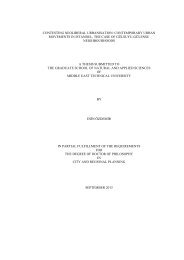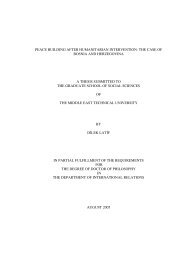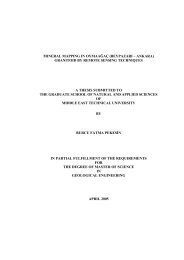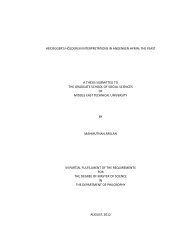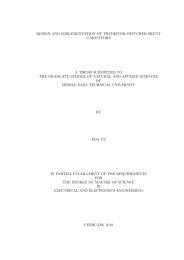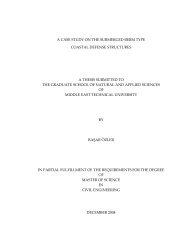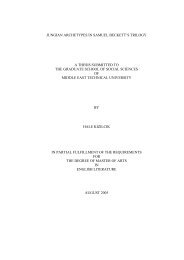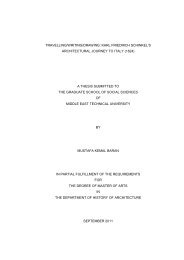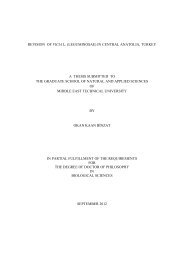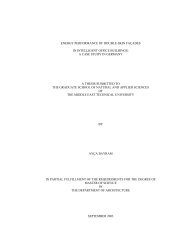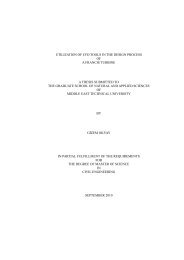View Original - Middle East Technical University
View Original - Middle East Technical University
View Original - Middle East Technical University
Create successful ePaper yourself
Turn your PDF publications into a flip-book with our unique Google optimized e-Paper software.
Supposedly NeoPolanyian analyses of market society however embargo exactly this<br />
prolepsis. This comparative sociology studies socio-organisational systems whose<br />
terms of socialisation would always salvage some level of reciprocity and<br />
redistribution, yet would nevertheless argue that ‘market exchange ... makes sense as<br />
an abstract concept only if it is perceived as a finished transaction taking place<br />
between as many actors as possible who are unaffected by other kinds of established<br />
social relations’(Mingione 1991:3). To this effect, markets are not exactly social<br />
structures. In fact, markets-as-invariants are the decisive explanatory category when<br />
these sociologists analyse perturbations to the foregoing patterns of socialisation and<br />
the terms of change in the overall degree of reciprocity and redistribution within a<br />
society. Market is no longer open to such perturbations or change but it is itself the<br />
crater of social causality. In other words, market concept alone rebuffs the otherwise<br />
theoretical undecidability of thoroughly gratuitous historical and social circumstances.<br />
3.3 Boyer on Capitalism<br />
Non-institutionalist theories(foremostly Marshallian partial equilibrium, Walrasian<br />
general equilibrium, and Chicago paradigm of economics) espouse that a theory of<br />
market economy is enough for the analysis of the form and social consequences of<br />
capitalism as an economic system(Boyer 1996b:38). However there is utmost double<br />
entendre with both practical and later more analytical or even formalistic<br />
understandings of the concept –market. It touches upon either the sectoral patterns of<br />
demand(or the aggregate effective demand for economy at large), or a non-coercive<br />
but competitive coordination mechanism in which commodities ultimately sell at<br />
invariable prices, or even a plenary system of demands for commodity as well as<br />
labour and capital markets via whose terms economic units cavort. ‘Truly existing<br />
institutions are implicitly compared with the ideal of a society co-ordinated by a series<br />
of pure and perfect markets upon which no single individual has any influence but is<br />
free to choose’(Boyer 1996b:96-98). Foremostly Boyer would excoriate the<br />
redundant prevarications in and later the analytical looseness of the concept of market<br />
in these theories of capitalism qua market economy. For a solitary commodity,<br />
59



